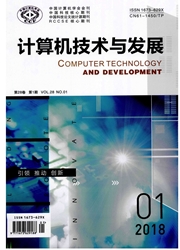

 中文摘要:
中文摘要:
针对基于IEEE 802.11p协议的车载网络MAC层DCF(分布式协调功能)信道接入方法存在数据包接收率低、时延高、可扩展性差等问题,提出一种基于Q学习的CW动态调整算法-QL-CWmin算法。区别于现有的BEB算法,通过利用Q学习,网络节点(Agent)能够不断地与周围环境进行交互学习,根据学习结果动态地调整竞争窗口(CW),使节点总能以最佳的CW(从周围环境中获得奖赏值最大时所选的CW大小)接入信道,以减少数据帧碰撞、降低端到端传输时延。仿真结果表明,采用QL-CWmin算法的通信节点能快速适应车联网的未知环境,数据包接收率和数据包传输时延得到了有效改善,同时该算法能为节点接入信道提供更高的公平性,适用于各种不同负载程度的网络环境。
 英文摘要:
英文摘要:
A Q -Learning based back-off algorithm is proposed because the traditional DCF approach used for IEEE 802.11 p MAC protocol to access the channel has some problems of the low packet delivery rate,high delay and the poor scalability in VANETs. The pro-posed algorithm, which is quite different from the traditional BEB algorithm,is adopted by the nodes (Agents) to interact with surround- ings continuously and learn from each other. The vehicle nodes adjust the size of CW (Contention Window) dynamically according to the results learned from the surroundings so that the nodes can access the channel with the optimal CW eventually minimizing the packet col- lisions and end-to-end delay. The simulation results show that the communication nodes using the proposed algorithm can adapt to the unknown vehicular environment rapidly, and simultaneously the high packet delivery ratio, low end-to-end delay and high fairness can be achieved for vehicular network with various level load.
 同期刊论文项目
同期刊论文项目
 同项目期刊论文
同项目期刊论文
 Best-retransmission count selection for environment optimization over wireless heterogeneous network
Best-retransmission count selection for environment optimization over wireless heterogeneous network 期刊信息
期刊信息
